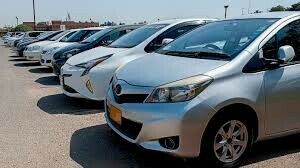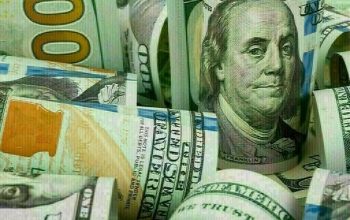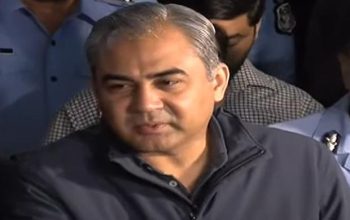Ali Asghar Jamali, Chief Executive Officer of Indus Motor Company (IMC) that assembles/manufactures Toyota-brand vehicles in Pakistan, has called on the government to take immediate action to curb the influx of imported used cars, which he believes are receiving preferential treatment.
Speaking to a group of journalists in Karachi, Jamali suggested that rationalising taxes and increasing duties on imported used cars could help regulate the industry and support local automakers.
“The local auto industry has advised the government to intervene in this matter, with suggestions of corrective measures in the upcoming budget for supporting the local auto industry,” Jamali said.
Local vendors suffer as import of used cars rises
“Increasing duties and taxes in the upcoming budget will provide an opportunity to regulate the excessive import of used cars into the country. It will also help the local auto industry to benefit from a slightly better business climate, stable exchange rate parity, and a foreseeable reduction in interest rates.”
Jamali noted that the local auto industry has invested approximately $2.5 billion, generated around 2.5 million direct and indirect jobs within the country, and contributed about Rs 400 billion to the national exchequer in FY2022 alone.
However, the industry is facing significant challenges due to the substantial import of used cars, which has increased by a staggering 553% in the past year.
This has resulted in a 35% decline in sales for local automakers, with vendors operating at only 25-30% capacity.
The company also showed a presentation where it looked to demonstrate how the depreciation of imported used cars brings taxes much less than its comparable locally manufactured CKD vehicles.
New imported cars/vehicles: MoC takes step to help avert detention by Customs at ports
According to the presentation, Pakistan spends an average of $14,010 on buying an imported used car while in comparison $10,097 is spent on locally assembled vehicles. Presently, taxes on the import of used cars are much less than locally CKD vehicles.
Jamali added that by low taxation imposed on imported used cars, the government was also losing significant revenue.
“If this condition continues, it will force vendors to wind up their businesses, since their plant’s operations are currently at an unfeasible position,” Jamali warned.
“The local auto industry has an annual production capacity of 500,000 units, with 13 companies collectively producing more than 40 models locally. At present, the average monthly import of 3,068 used cars has made local businesses unsustainable, which may lead to unemployment and economic loss for the government.”
Budget FY25: IMC demands govt support local auto industry
“There is a need to have sufficient processes in place to allow used vehicles to be imported into the country, only for the use of overseas Pakistanis’ families,” he said.
“Illegal channels of hawala and hundi are used for sending valuable foreign exchange for used vehicles, which is not the case with the local auto industry that uses the legal route fully for importing all parts into the country.”
The CEO appreciated the government’s support for the industry and mentioned that delegations have held fruitful discussions with Prime Minister Shahbaz Sharif.
He also highlighted IMC’s efforts to increase localisation, export vehicles, and train human labor for export to Japan.
He said that Toyota’s newly launched Hybrid Electric Vehicle (Toyota Corolla Cross) has the highest percentage (50%) of localised parts in this category.
“We are looking to increase localisation and substitute imports by another $150 million in the next five years,” Jamali responded to a question by Business Recorder about the impact of rupee depreciation on auto parts localisation.
Read the full story at the Business Recorder - Latest News website.



